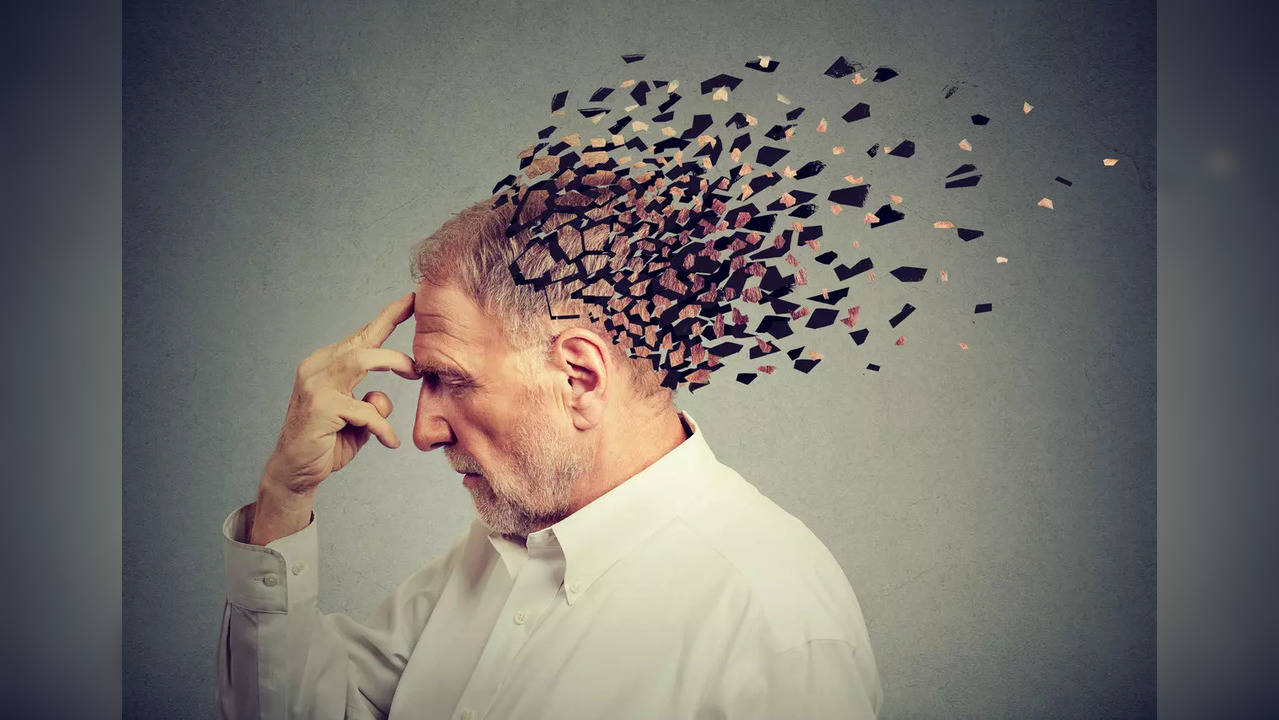Do you share this disorder with Brad Pitt: Prosopagnosia, the inability to remember or recognise a person's face
Is not being able to register the finer features of a person's face a handicap? Is it a disorder? If you too have difficulty remembering faces, you are in good company. Brad Pitt, Shenaz Treasury - all have confessed that they have been diagnosed with Prosopagnosia.

Do you struggle to recognise people you have met earlier or have been introduced to earlier? Prosopagnosia is the inability to reconise faces and is also called face blindness.
Photo : iStock
Have you been introduced to someone once before but cannot place that person when you meet again? Or cannot tell apart the neighbour you were introduced to last week from a crowd?
Probably, your acquaintances feel you are a snob for not recognising and giving a familiar nod to them at the next meeting. Few realise that Prosopagnosia is a health or brain issue at all.
On Tuesday, 28 June, actor and travel blogger Shenaz Treasury who made her Hindi film debut with Shahid Kapoor-starrer Ishq Vishk revealed that she has been diagnosed to be suffering from Prosopagnosia, “You have difficulty recognising neighbours, friends, coworkers, clients, schoolmates. People you know expect you to recognise them. Failing to recognise someone might make you seem aloof. Many sufferers report losing friends and offending coworkers because they have failed to recognise them. This is me.” Shenaz wrote, “So you confuse characters in movies or on television more so than other people? Yes, I do. I can't tell the difference if two characters have the same height and build and hairstyle.” Seeking understanding from people, Shenaz wrote, “So now please understand that this is a real disorder and not me being aloof or snobbish.” She called it a “real brain issue.”
Prior to Shenaz's announcement, actor Brad Pitt had also revealed his struggle with the face-blindness condition that makes him forget faces. In an interview with GQ, Pitt claimed that he may be suffering from "undiagnosed face-blindness" due to which he finds it difficult to "remember people" after meeting them at social parties.
The famous 58-year-old Hollywood actor says that he has not been formally diagnosed with the condition yet, but worries that the condition may leave those he meets with a negative impression and a reputation that he is 'remote and aloof, inaccessible, self-absorbed'. "So many people hate me because they think I'm disrespecting them," Brad Pitt told Esquire magazine during his June 2013 cover interview, admitting that he believes he has prosopagnosia. "You meet so many damned people. And then you meet 'em again."
Which celebrities have prosopagnosia?
According to Dr Brad Duchaine (the co-founder of faceblind.org whose team at Dartmouth work in collaboration with Harvard University and the University of London) as cited by ingeniumcanada.org has estimated that as many as one in 50 people are affected by prosopagnosia to some degree.
Apart from actor Brad Pitt, the list of famous people who have been officially diagnosed with prosopagnosia includes anthropologist Jane Goodall, British actor Stephen Fry, Apple co-founder Steve Wozniak, and Victoria, Crown Princess of Sweden.
What is Prosopagnosia and what causes it?
Prosopagnosia - commonly called face blindness - is the inability to recognise familiar faces and the inability to learn to recognise new ones. According to Science Friday, researchers recognise two types of prosopagnosia — a rare, acquired type, and a more common form called developmental prosopagnosia. The acquired one leaves people with the inability to recognize faces due to some sort of brain injury, such as a stroke. In the Developmental Prosopagnosia cases, the cause is that certain brain mechanisms failed to develop properly, perhaps for genetic reasons (it does seem to run in families).
According to Nature.com, blogger and prosopagnosia sufferer, Glenn Alperin uses a metaphor on his personal website to describe his affliction. "Imagine that every person has a camera inside their head. Every time they meet somebody for the first time, they take a picture with their camera, develop the picture, and file it away for future use. ...For me, I take a picture with my camera, but I never store it away."
The Nature.com article says that a brain region shown to activate specifically in response to faces, called the fusiform gyrus, has been implicated in the disorder. The fusiform gyrus is located in both the occipital and temporal lobes, which are responsible for visual processing and retaining visual memories, respectively. Nature.com adds that despite these shortfalls, those with the disorder often compensate by becoming attuned to others' non-facial cues, such as fashion, voice, gait, and body shape—but, more often than not, with a price on their personal and professional lives.
Disclaimer:Tips and suggestions mentioned in the article are for general information purposes only and should not be construed as professional medical advice. Always consult your doctor or a dietician before starting any fitness programme or making any changes to your diet.
Trending:
End of Article
Subscribe to our daily Lifestyle Newsletter!
Related News





How To Achieve Hormonal Balance Naturally? 5 Healthy Habits To Adopt

Males Might Be More Likely to Inherit Autism Than Females: Study

Combat Cervical Spondylosis Pain: Effective Exercises To Alleviate Pain

This Personality Test Is Uncannily Correct At Predicting Your Hidden Traits

Limited Sun Exposure To Obesity: Factors That Lower Vitamin D Levels








